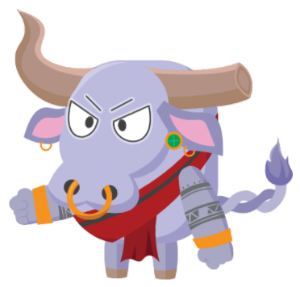Maila recently published a story on a house bill being passed for video game violence – and how it finally crept into Philippine congress.
House Bill 4095, initiated by ARC party-list Representative Narciso Santiago, proposes imprisonment of not more than one year or a fine not exceeding P100,000, or both, for violators.
In filing the bill, Santiago cited recent studies that revealed minors who play violent video games “are more likely to exhibit violent, asocial or aggressive behavior toward others, including other minors.”
A violent video game, he said, also depicts “human-on-human violence” in which the player “kills, seriously injures, or otherwise causes serious physical harm to a human or character with substantially human characteristics.”
My personal stand on the proposed bill? This is an outdated stigma. Do you want to know the surprising truth? The most recent study that has been conducted for video game violence is documented in Grand Theft Childhood: The Surprising Truth About Violent Video Games and What Parents Can Do. Let me quote:
The surveys also found correlations (statistically significant relationships) between violent game play and some common childhood problems. Boys who played any Mature-rated game a lot had twice the risk of certain aggressive behaviors (e.g., getting into fights, beating up someone, damaging property for fun) or school problems (e.g., getting in trouble with a teacher, getting poor grades), at least once during the past year, compared to boys who played games with lower age ratings. Among girls, the risk of problems was three to four times higher for those who played violent games vs. those who played other games.
Interestingly, boys who didn’t play any video games during a typical week also had a higher risk for problems; however, there were not enough boys in this group to find statistically significant differences. Kutner and Olson stress that a one-time survey can’t show cause-and-effect (it could be that already-aggressive teens prefer violent games, for example) and that most children who play violent games do not have problems.
They also document many creative, social and emotional benefits from video game play, even games with violent content, which were used by many children to relieve stress and get out anger.
Ultimately, the authors express concern that “focusing on such easy but minor targets as violent video games causes parents, social activists and public-policy makers to ignore the much more powerful and significant causes of youth violence that have already been well established, including a range of social, behavioral, economic, biological and mental-health factors†(page 190).
Watch the video interview (Adam Sessler also did an interview with the authors at X-Play but I can’t find that particular episode on the web stream – it’s available though for download at iTunes):
I’m not a political or legislation blogger – but I AM a gamer and I’ve always found gaming – even “violent games” to be a huge source of relief when all other forms of stress relievers have failed. Studies like the aforementioned always fail to see the other end of the valley – on the number of gamers who play violent games and HAVE NOT resorted to violence to resolve an issue.
Okay let’s put this in check. The proposed bill only says that this shouldn’t be available to minors. All I’m saying is that although there are some connections to video games and violence, these are very loose ones. The correlation isn’t 1 is to 1. The book is a very good read and I highly recommend it to you if you can get your hands on a copy.



Leave a Reply